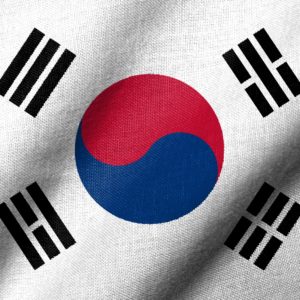JEJU, South Korea — I could hardly believe the torrent of angry words pouring from the venerable Catholic priest leading the protest of construction of the South Korean navy base on the southern shore of this scenic island province off Korea’s south coast.
“CIA, you are CIA,” the Rev. Mun Jeong-hyun shouted at me as soon as he recognized me among a group of foreign professors and students who had come to Gangjeong Village while attending a three-day “peace academy” at Jeju University. “CIA, get out, get out.”
The priest’s outburst was not only shocking and embarrassing but also completely puzzling. I had met him more than five years earlier while researching a brief book, “Okinawa and Jeju: Bases of Discontent,” comparing the anti-base movements on Japan’s southernmost island prefecture and Korea’s southern island province.
He had gladly answered questions then and on two or three subsequent visits, but now he viewed me as the enemy as he repeated “CIA, CIA” and ordered me out of his workshop on an alley beside the gleaming base where three or four patrol boats were berthed. Done with his daily duty of leading protesters at a Mass outside the main gate, he was busy carving small stone figures symbolizing his continuing struggle when he saw me among his visitors.
What could I have done or written to provoke such a tirade? I was sure nothing in the book could have offended him, and I told him I doubted he had read it. No, it was a column I had written for the newspaper Korea Times. I had quoted him as acknowledging the protest had failed in its mission of stopping the base from opening and then had apparently angered him by asking if he really believed American forces were on the base, as he had often claimed. He had responded by denouncing the United States as “the axis of evil.”
What is it that drives this holy man to engage in vituperative attacks with no foundation in fact? How could he shift so easily from prayer to propaganda? What about the ninth of the Ten Commandments that says “Thou shall not bear false witness”? Had the Rev. Mun, in his crusading zeal, forgotten holy scripture? Or did he somehow see himself as exempt from biblical teaching that might not suit his purposes as an activist?
It’s not likely, if I were to encounter the Rev. Mun again, that he would do anything other than shout more denunciations in response to efforts on my part at negotiations or dialogue. Those are two words that we often hear in formulations of how to deal with North Korea but sadly are often missing in any serious attempt at reconciliation.
Indeed, this priest’s response to me shows the obstacles to coming to terms with dedicated activists to whom mindless propaganda is a preferred tool in a long-running standoff that shows no sign of a happy ending, We keep hearing that North Korea wants talks on a peace treaty formally bringing closure to the Korean War, but the North has made clear it will never give up its missile and nuclear programs, and Kim Jong-un has yet to respond to President Moon Jae-in’s request to see him.
The intransigence of diehard activists parallels the stubborn insistence of North Korea on a program that is costing enormous amounts of money while endangering millions of lives.
Still, it’s possible to appreciate the concerns of villagers here about a base in their midst. Distant though Jeju may be from the line with North Korea, no one can predict what would happen in a regional war. As long as the North is threatening to fire missiles near the U.S. territory of Guam, site of important American air and naval bases, what’s to stop them from targeting the naval base in Gangjeong Village?
False charges, however, do nothing to clear the air. Pro-North activists like to claim that the United States and South Korea are targeting North Korea, planning exercises that pose a threat to the North, justifying the North’s nuclear program, but anyone who has witnessed them knows they are completely defensive. Theorists in universities and think tanks love to talk about a freeze in tests that would do nothing about getting the North to abandon its nukes and missiles.
One has to admire the grit and determination of a feisty priest who refuses to give up on his crusade even as the navy base in Gangjeong Village opens for normal operations. He plays into the hands of North Korean propaganda, though, by claiming that American forces have anything to do with running it.
As for his CIA nonsense, he needs to know that I have assiduously avoided any relationship with any government agency, overtly or covertly, in half a century in journalism. I would be glad to see him again, explaining my creed as an independent journalist, taking notes on his utterances, but that might be a little difficult if he persists in shouting, “CIA, get out!”

